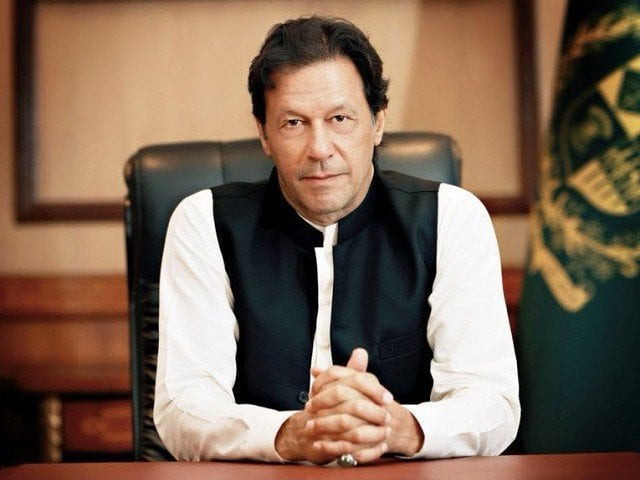People demand better leadership
The coronavirus that has caught us unguarded also exposed several other national weaknesses

PM Imran Khan. PHOTO: PID
A quick recall would illustrate the bankruptcy of our past politics. For nearly half the life of the nation, ambitious generals exploited the weakness of political leaders and fragility of the system. Politicians too, more interested in amassing wealth and power rather than serving the people, were undermining democracy.
With low priority given by successive governments to education and health sectors the overall development of the nation remains stunted.
As the situation stands presently, politics continues to be manipulated with chances of fair accountability continuing to recede. Past experience has shown that when accountability was perceived more as a demonstration of witch-hunting and being one-sided, it lost its public support irrespective of the merits of the allegation. Moreover, the policy of keeping the opposition leaders locked in one case after the other weakens democracy as our history bears witness. And what is worse, due to the heavy burden on courts, the genuinely guilty of corruption among them get away scot free as experience has shown.
The concept of a political government sharing power with the military leadership could have been overlooked in the past as the country was transiting from military rule to democracy. There is no justification now for any deviation from the Constitution where the supremacy of the elected government is sacrosanct. And national interest demands that the country be governed strictly in accordance with the Constitution wherein the elected representatives and parliament should be the centre of power. Unfortunately, this is not the case as the establishment, an amalgam of state institutions civil bureaucracy and military, while staying in the background, retains a huge influence on political affairs and national decision-making. This has been the case ever since the creation of Pakistan and has to change, otherwise democracy would remain emaciated and the country its hostage. Apart from the constitutional deviation this arrangement is aggravating national problems and lowering the country’s international clout.
The civil-military relations are the key to restoring political equilibrium in Pakistan. These have a direct bearing on how the military leadership subordinates itself to civilian authority. Of course, there is no denying that military leadership should have an important and critical voice in the formulation of security and national policy formulation and allocation of financial resources. This is the case in even the most matured democracies but the final decision rests with the elected government.
The present distrust and war of words between the government and the opposition has gone too far and could damage the country’s interests. Apportioning blame on one side or the other would be counterproductive and an exercise in futility. What is needed is that it should come to an end, as there are no winners in this blame game. The losers are the people who would be further neglected by the political elite!
It may be far-fetched to expect the Prime Minister to engage with the opposition’s top leadership. But what else is the way to bring rationality and functionality in politics without engagement and interaction at the highest level. Otherwise the political differences will continue to accentuate. The strained relations are having an adverse bearing on the political stability but also on the economy and general image of the country.
The issue of governance depends largely on civic peace and on the capacity and legitimacy of the state. Civic peace contributes toward economic growth. So any action by the government or opposition to disturb this peace will further depress the economy. The inability of the economy to generate sufficient jobs that the government had promised to absorb the millions of unemployed youth could lead to social disruption. Early signs of what we are witnessing.
Another disturbing factor is the continuous decline in public revenues. The share of taxes to GDP even prior to the coronavirus was on decline. This trend is in sharp contrast to other developing countries including those of South Asia. Considering that Pakistan spends close to 3% of GDP on defence, the gap in social and development spending is even larger.
Adding to our national challenges is the advent of the Covid-19 pandemic that demands cooperative national approach and a science-based rational decision-making process. Regrettably, it has been handled on personal whims amplifying the problem with coronavirus spreading exponentially.
Pakistan’s calamity is unfolding amid a broader explosion of the virus in principal cities especially Lahore, Karachi and Peshawar.
And even before the coronavirus began its march across the country the economy was facing a serious crisis and was being kept afloat through the IMF aid package. The pressure on the federal and provincial budgets imposed as a consequence of the virus is likely to exacerbate the affordability and implementation of development plans and even normal maintenance and upkeep of systems. This rather grave and unpredictable state of affairs demands cooperation and national solidarity.
The coronavirus that has caught us unguarded also exposed several other national weaknesses. Foremost among these was an inability to respond to challenges due to weak national discipline, ignorance and rampant poverty.
Are we learning any lessons from the hard times we are passing through or we will once again fritter away this great opportunity of changing course?
The great challenges we face today apart from the immediate one of coronavirus are climate change, economic meltdown, weak democratic structure, overburdened public sector enterprises and a hostile neighbourhood.
In these trying times, are the people not justified in demanding from our leaders a more mature and cooperative approach toward addressing these national problems? One wonders if our leaders are listening.
Published in The Express Tribune, June 17th, 2020.
Like Opinion & Editorial on Facebook, follow @ETOpEd on Twitter to receive all updates on all our daily pieces.















COMMENTS
Comments are moderated and generally will be posted if they are on-topic and not abusive.
For more information, please see our Comments FAQ